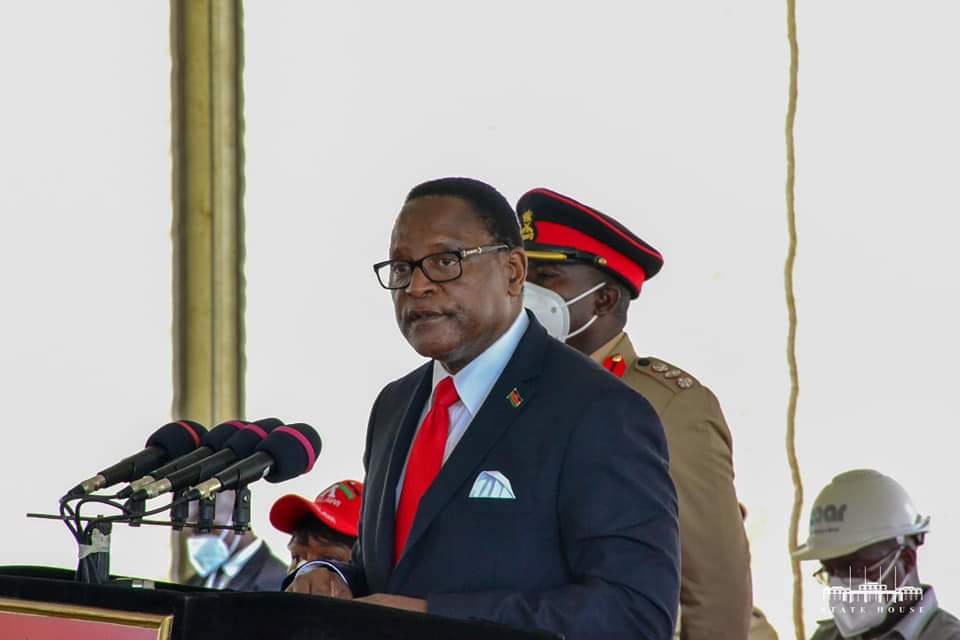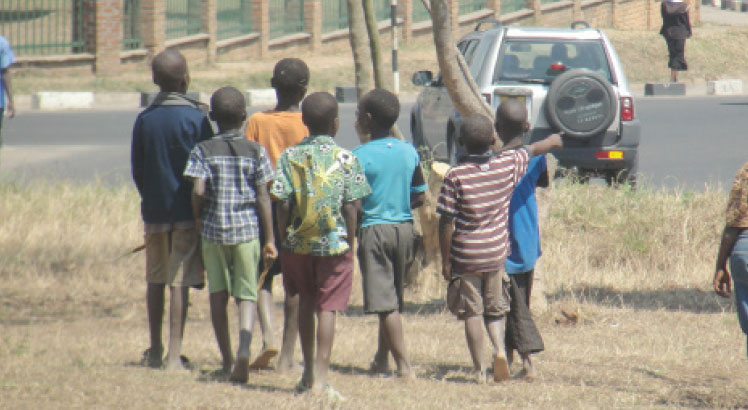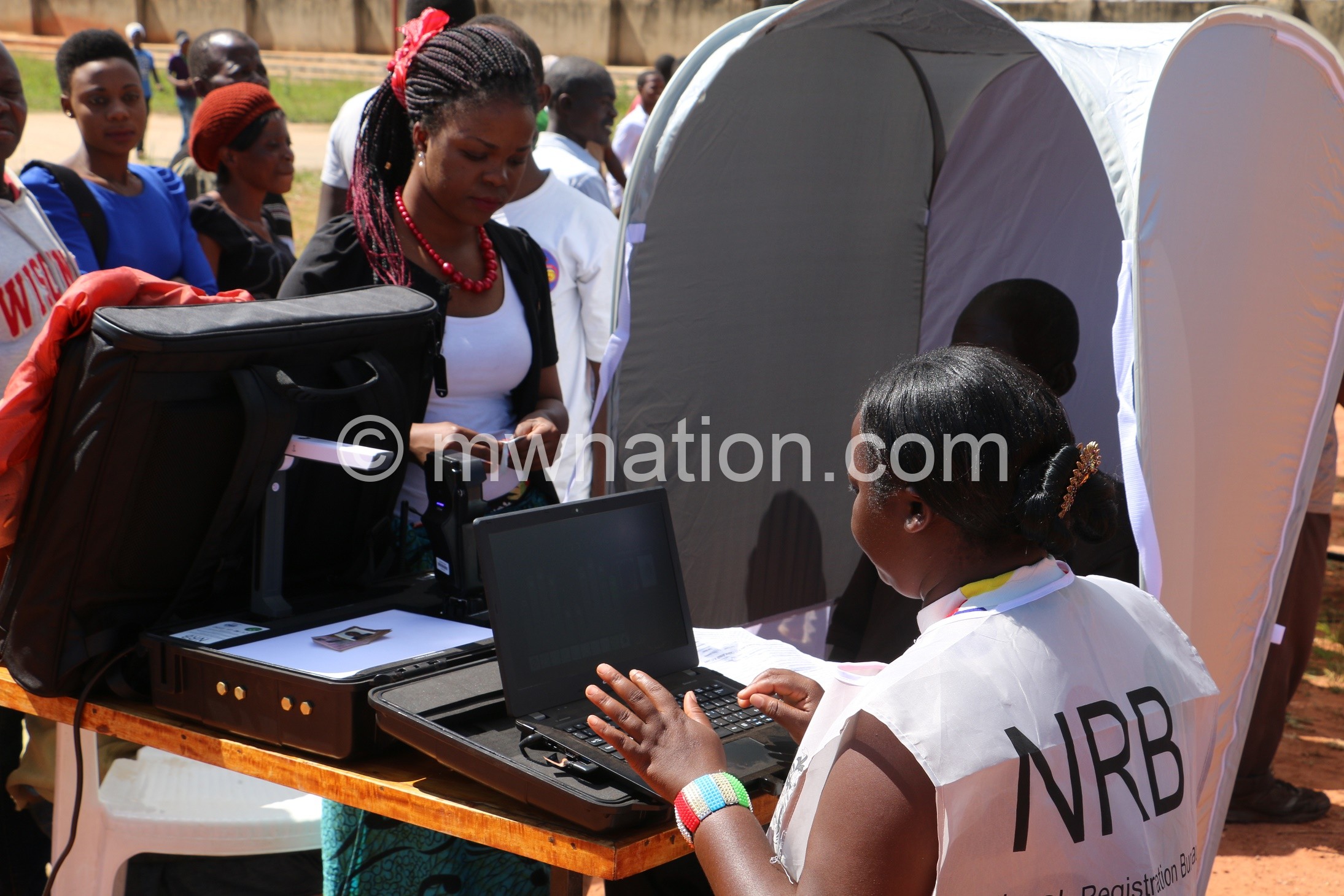Chakwera sticks to bloated AIP
President Lazarus Chakwera has put his foot down on spending an extra K70 billion on the Affordable Inputs Programme (AIP), saying it serves the welfare of a majority poor Malawians.
The President’s position as expressed through State House director of communications Sean Kampondeni on Monday comes against a background of concerns from experts that the programme was eating a large chunk of the agriculture sector budget at the expense of other investments in agriculture commercialisation.

It also comes at a time fertiliser prices in the country have gone up, meaning that government would need an extra K70 billion on top of the approved AIP allocation of K142 billion in the 2021/22 National Budget to benefit 3.7 million smallholder farming households.
In an interview yesterday after the fortnightly State House Briefing at Kamuzu Palace in Lilongwe yesterday, Kampondeni, who is also the President’s executive assistant, said it was not correct to present expenditure for the welfare of Malawians as being wasteful.
He said Malawians pay taxes; hence, they expect the taxes to translate into public service delivery and the AIP is a public service they need.
Said Kampondeni: “Malawian people are fully aware that there cannot be a public service without spending money and to speak of huge chunks of money, I don’t know what huge chunk is because the entire budget gets spent and we are talking about a fraction of the budget spent on AIP; a public service.”
He said the President promised that his ministers of Agriculture and Information would be issuing a statement soon on AIP’s way forward.
But economist Milward Tobias said in an interview yesterday that rising fertiliser prices this year should move government to start employing AIP exit strategies.
He said the extra K70 billion AIP budget would mean government resorting to domestic borrowing to finance the deficit or the Treasury would let other budget lines suffer by reallocation of some budget resources to AIP.
Tobias said: “We have always said that subsidising food security without the exit strategy is catastrophic. There are alternatives to AIP like government’s own plan to establish mega farms and district anchor farms which can lead to sustainable food supply.”
He advised government to learn concepts from farmer organisations such as the National Smallholder Farmers Association of Malawi (Nasfam) where farmers are organised in groups, given capital and extension services and are pushed to become independent.
Tobias said that government needs to prepare farmers for an AIP exit in line with the Malawi 2063 which emphasises on wealth creation and self sustenance and ensure that the AIP funds should finance mega irrigation scheme projects that will spur economic growth.
In the 2021/22 National Budget, government allocated K142 billion to AIP out of which K126 billion is for the procurement of fertiliser and the remainder for seed and logistics.
This means the AIP programme will need K212 billion to benefit about 3.7 million beneficiaries across the country.
Minister of Agriculture Lobin Lowe said in a recent statement that the ministry was exploring possibilities of procuring fertiliser directly from suppliers at affordable prices rather than buying from middlemen at high cost.
He said: “I am engaging with the Ministry of Finance to look at how the budget shortfall could be covered to achieve a targeted number of beneficiaries. We have worked out a number of scenarios that will achieve the 3.7 million beneficiaries as planned.”
The multi-billion kwacha AIP was designed to improve agricultural productivity in Malawi by subsidising the cost of agricultural inputs for the benefit of the country’s farmers.
In the budget, the agriculture sector was allocated K284.4 billion which is 2.8 percent of gross domestic product (GDP), and representing 14.3 percent of the total budget.
In the Tonse Alliance maiden 2020/21 National Budget, government allocated K160 billion to AIP, an allocation that was four times that of the preceding Farm Input Subsidy Programme at about K36 billion in the 2019/20 national budget. AIP budget alone then represented seven percent of the total approved 2020/21 National Budget of K2.2 trillion.
But later in February this year, government revised the AIP budget at mid-year to K142 billion and the same value has been maintained in the 2021/22 National Budget that will run for nine months as government transitions to a new financial year cycle to start from April 1.
Under the programme, beneficiary farmers were paying a fixed price of K4 495 per 50 kilogramme (Kg) fertiliser bag and K2 000 for 5kg cereal seed coupon (either 5kg maize hybrid seed or 7 kg sorghum seed or 7 kg rice seed).





